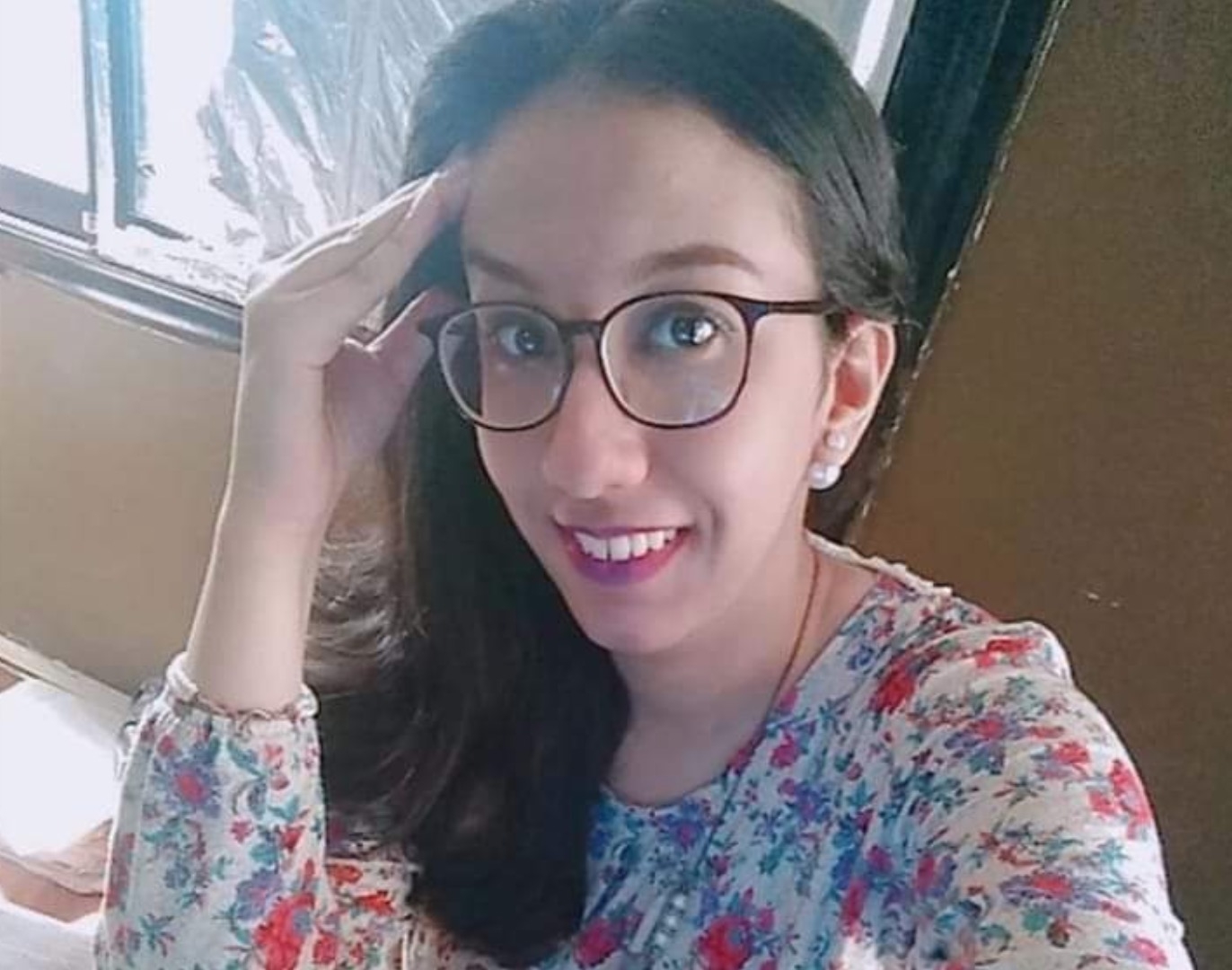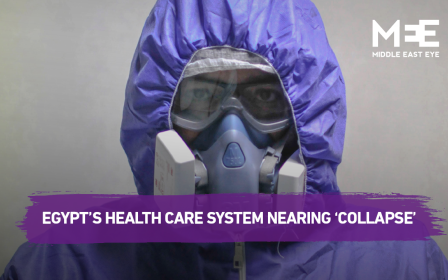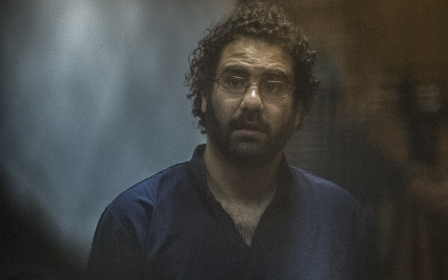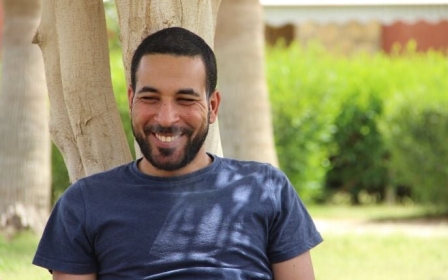Egypt's government called on to release disappeared journalist Shimaa Samy

Pressure is growing on Egypt's government to reveal the whereabouts of and release an Egyptian journalist who has been missing for 10 days since being arrested.
Shimaa Samy was seized from her home in Alexandria on 20 May and has since been held incommunicado without any known charges, according to Darb newspaper, where she worked as a contributor.
Sabrina Bennoui, head of the Middle East desk at the non-profit organisation Reporters Without Borders (RSF), strongly condemned Samy's disappearance and called for her immediate release.
"Since her last message on Facebook on 20 May, she has not been able to give any news and has still not appeared in court, which is absolutely unacceptable," Bennoui told Middle East Eye.
'Targeting people like Samy is meant to have a chilling effect on all journalists and civil society members who dare to express independent views'
- Alaa Abdel Monsef, human rights lawyer
According to the rights group, Samy is the sixth journalist to be arrested by authorities since 9 May. The others are Moataz Wadnan, Mostafa al-Aasar, Haitham Hasan Mahgoub, Sameh Hanin and Mada Masr editor-in-chief Lina Attalah, the only one to be released.
New MEE newsletter: Jerusalem Dispatch
Sign up to get the latest insights and analysis on Israel-Palestine, alongside Turkey Unpacked and other MEE newsletters
Acccording to RSF, at least 31 journalists are currently imprisoned in Egypt, one of the world's biggest jailers of media workers.
It is widely believed that Samy has been detained over her writings in Darb criticising the government's detention of political prisoners. Darb is a news website affiliated to the opposition Socialist People's Alliance Party.
The website, now blocked, was launched in March, and has covered the plight of political prisoners in Egypt and human rights issues, as well as the impact of the coronavirus pandemic on those in prisons.
Nearly a month prior to her arrest, Samy highlighted in an article the case of Alaa Abdel Fattah, a leftist activist who went on a hunger strike in April in response to the ban on family visits.
"Mothers cry at the gates of prisons during the heat of the day in Ramadan to give medicines and disinfectants to their children who are deprived of them," she wrote, referring to Abdel Fattah's mother.
'Zero-sum game'
Alaa Abdel Monsef, an Egyptian human rights lawyer, said Samy's disappearance is part of the government's "zero-sum game" with journalists and civil society workers.
"Targeting people like Samy is meant to have a chilling effect on all journalists and civil society members who dare to express independent views," he told MEE.
"There is a systematic policy of criminalisation of writing that is not conforming to the government’s talking points."
A social media campaign with the hashtag #شيماء_سامي_فين (Where is Shimaa Samy) has gained traction online, with many people condemning her disappearance and calling for her release.
Many used the hashtag to shed light on the nature of arrests of journalists in Egypt and the lack of information given to families on the whereabouts of individuals or the charges against them.
Translation: Today is the eighth day of Shimaa Samy’s disappearance, since she was arrested at her family home in Alexandria. There has been no contact from lawyers or information given to her family on where she is being held.
Earlier this month, Egyptian authorities arrested the editor of prominent Egyptian independent news site Mada Masr, which the government has subjected to a number of arrests, raids and bans.
Lina Attalah was detained after interviewing Alaa Abdel Fattah's mother outside Tora prison.
The government of President Abdel Fattah el-Sisi has been accused of forcibly disappearing hundreds of people since he came to power in 2014.
Middle East Eye delivers independent and unrivalled coverage and analysis of the Middle East, North Africa and beyond. To learn more about republishing this content and the associated fees, please fill out this form. More about MEE can be found here.




